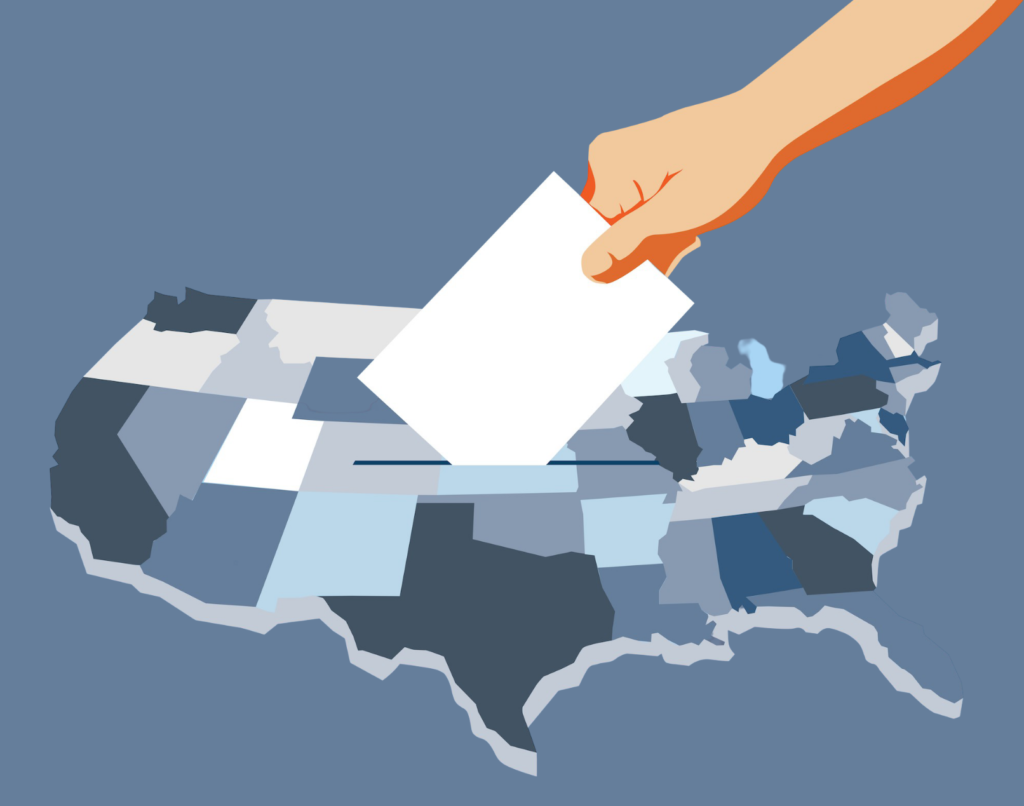
American policing must support our democratic values and system. On Election Day, this means protecting and serving all participating in the electoral process in a nonpartisan manner. The National Police Foundation has developed resources to address some of the most critical issues police leaders will face while providing public safety at polling locations, such as:
- A listing of the pertinent local laws (in partnership with the National Conference of State Legislators)
- Promising practices for officers and supervisors providing public safety on Election Day
- Communication strategies intended to foster interagency collaboration and inspire community trust
National Conference of State Legislatures (NCSL) State-by-State Resources
State-by-State Guide to Laws Pertaining to the Role of Law Enforcement in Polling Locations
Federal and state laws provide guidance on the roles that police (and other uniformed officers) can have at polling places on Election Day or during in-person early voting. These regulations are intended to prevent intimidation or interference with freedom of elections.
State laws are varied, but in general, police may be present at polling places for the purpose of law enforcement.
Federal law clearly prohibits the deployment of troops and armed agents to polls.
- Ordering troops or armed forces to a polling place is a federal crime (18 U.S.C. § 592).
- Officers and members of the Armed Forces are generally prohibited from interfering in elections through intimidation of voters and other related conduct (18 U.S.C. § 593, §10102).

Guns at Polling Locations
Ten states—Arizona, California, Florida, Georgia, Louisiana, Mississippi, Missouri, Ohio, South Carolina and Texas—the District of Columbia and Puerto Rico explicitly prohibit guns and other weapons in polling places.
In many other states, concealed and open carry laws may restrict or allow the presence of firearms in certain locations that happen to be polling places, but not by virtue of their being polling places alone. For example, states may prohibit firearms in public schools, which are often designated as polling places thereby prohibiting firearms at those specific polling sites.
Additional Resources
Securing a Free and Fair Election: 2020 Voting (Anti-Defamation League)
State Fact Sheets on Voter Intimidation Laws (Georgetown University Law Center Institute for Constitutional Advocacy and Protection)
A framework for public safety to prepare for the 2020 election (Crime and Justice Institute)
Managing Driver Activity Around Elections (Voter Protection Program, NPI for Constitutional Advocacy and Protection at Georgetown Law, 21CP Solutions, and the Crime and Justice Institute)
Resources – Election Administration (National Association of Secretaries of State)
Responding to Violence and Security Concerns Relating to the 2020 Elections (US Conference of Mayors)
Election Violence Prevention Toolkit: A guide for U.S. Mayors and city leadership (US Conference of Mayors)
Election Security (Brennan Center for Justice)
COVID-19 Health And Safety Measures For Elections (National Governors Association)
Considerations for Election Polling Locations and Voters (Centers for Disease Control and Prevention)
If you have questions pertaining to any of these resources, please contact info@policinginstitute.org.
NPI would like to acknowledge the leadership of our partners on this project:
- Lead Partner & Author – Chief (ret.) Brandon del Pozo, Ph.D.
- Sheriff (ret.) Rich Stanek (Hennepin County, MN)
- Chief (ret.) John Donohue, J.D. (New York City Police Department)
